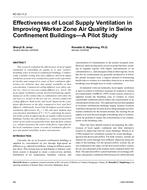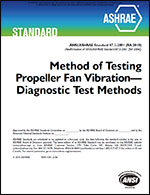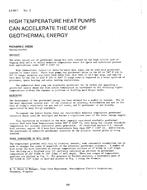Current models and test methods for determining filter efficiency ignore filter bypass, the air that circumvents filter media because of gaps around the filter or filter housing. In this paper, we develop a general model to estimate the size-resolved particle removal efficiency, including bypass, of HVAC filters. The model applies the measured pressure drop of the filter to determine the airflow through the bypass cracks and accounts for particle loss in the bypass cracks. We consider a particle size range of 0.01 to 10 µm, nine typical commercial and residential filters in clean and dust-loaded configurations, and a wide range of bypass gaps typical of those found in real filter installations. The model suggests that gaps on the order of 1 mm around well-seated filters have little effect on the performance of most filters. For high pressure drop filters, small gaps decrease filter performance and large gaps substantially decrease filter performance. Because higher efficiency filters also typically have a larger pressure drop, bypass tends to have a larger effect on high performance filters. The results provided here suggest that bypass can dramatically affect filter performance.
Units: SI
Citation: Symposium, ASHRAE Transactions, vol. 111, pt. 1, Orlando 2005
Product Details
- Published:
- 2005
- Number of Pages:
- 10
- File Size:
- 1 file , 1.7 MB
- Product Code(s):
- D-25623


